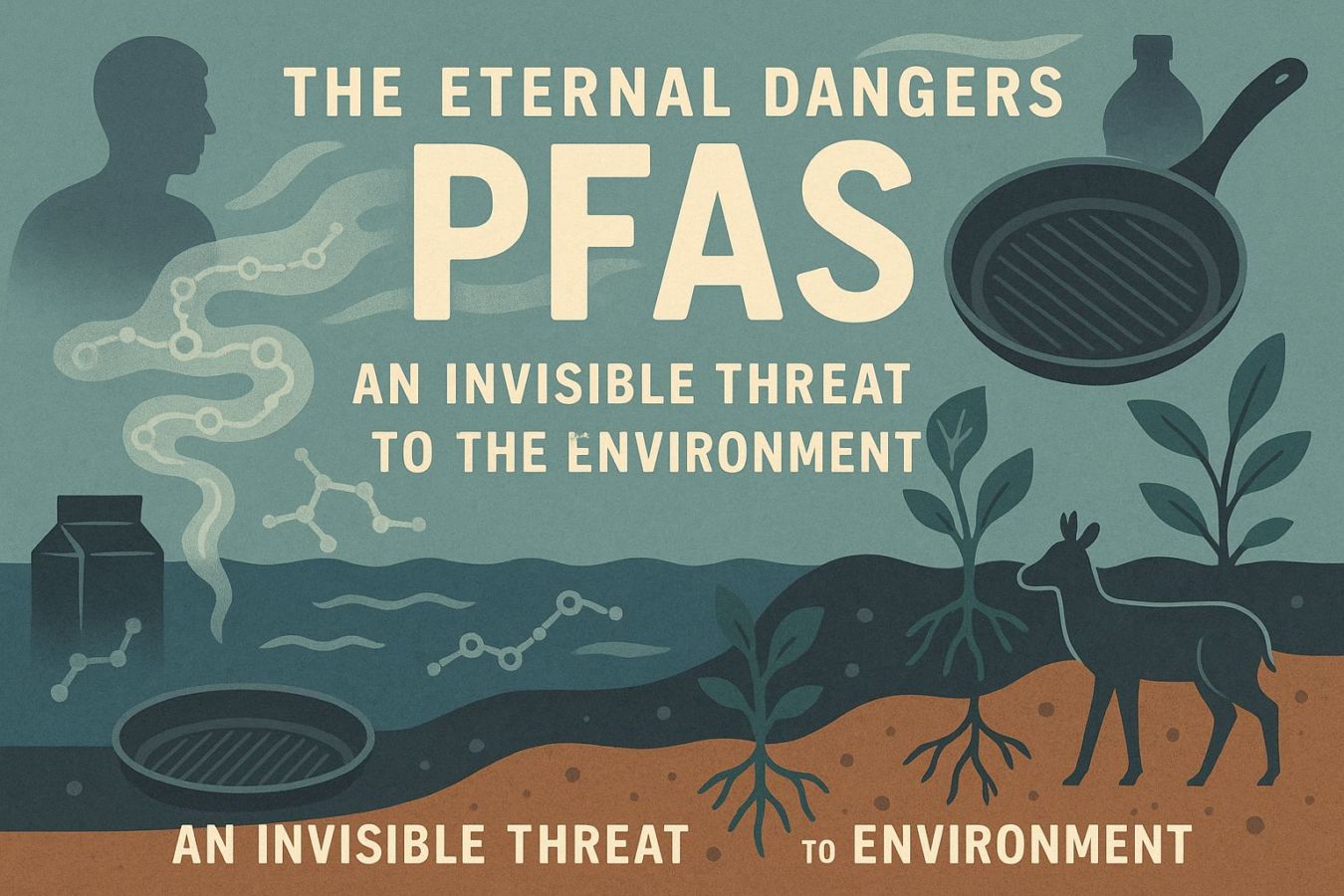PFAS: eternal pollutants threatening the environment
PFAS are fluorinated organic compounds that are used in many products because of their waterproof and non-stick properties. However, their unique chemical structure makes them extremely persistent in the environment, meaning they do not degrade easily and can accumulate in soils, groundwater, water bodies, and living organisms. Their long half-life and ability to bioaccumulate in the food chain make them particularly concerning eternal pollutants.
The effects of PFAS on human health and the environment
PFAS have been associated with many harmful effects on human health, including developmental issues, hormonal disorders, cancers, and liver and immune system damage. Their presence in the environment can also have serious consequences for wildlife, disrupting aquatic and terrestrial ecosystems and threatening biodiversity.
The omnipresence of PFAS in our daily lives
PFAS are found in many everyday consumer products such as non-stick coatings, food packaging, waterproof textiles, personal care products, and even in some industrial facilities. Their widespread use and ability to disperse in the environment mean that we are all exposed to these eternal pollutants, whether through the water we drink, the food we consume, or the air we breathe.
Inadequate regulation of PFAS
Despite growing evidence of their harmful effects, PFAS are not adequately regulated in many countries. The lack of strict standards and effective controls means that these eternal pollutants continue to be widely used and released into the environment without restriction. It is urgent for governments and industries to take action to limit the use of PFAS and to eliminate existing sources of contamination.
Taking action to eliminate PFAS from our environment
As guardians of the planet, it is our responsibility to take action to eliminate PFAS from our environment. This can involve adopting more sustainable consumption practices, choosing products without PFAS, supporting companies committed to reducing their use of these eternal pollutants, and pressuring authorities to implement stricter regulatory measures. Together, we can protect our environment and preserve the health of future generations.
Good practices for consumers
It is important for consumers to be mindful of the products they use on a daily basis. For example, avoiding kitchen utensils with Teflon non-stick coating, limiting the use of plastic food packaging, and opting for natural textiles. By making informed choices, we can contribute to reducing our exposure to PFAS and preserving the environment.
Conclusion
PFAS represent an invisible but persistent threat to the environment and human health. Their omnipresence in our daily lives and their ability to contaminate ecosystems make them particularly concerning eternal pollutants. It is time to take action to eliminate these toxic substances from our environment and ensure a healthier and more sustainable future for all.
Sources
– Environmental Protection Agency (EPA)
– National Institute of Environmental Health Sciences (NIEHS)
– Health Canada
– European Chemicals Agency



